Photo
This must be the most British product ever. A smart tea brewer? Now I’ve seen everything.
So how exactly are smart products made?
- Step 1: Make a ‘dumb’ product
- Step 2: If you like it then you should put a chip in it (A la Beyonce)
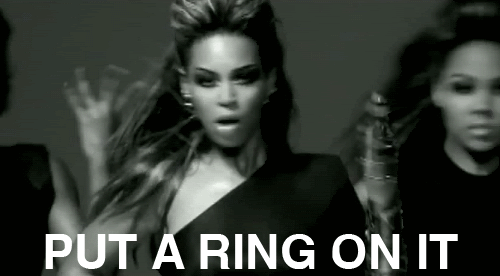
Jokes aside, smart products and the internet of things raise a number of privacy and data protection concerns. They need regular access to the internet, and to function properly they are required to process your personal data, for example smart home devices record what time you wake up, go to bed or come back home from work. On the face of it, a smart tea brewer is harmless in that it merely records your tea intake and preferences – but on a wider scale of things the device may record your preferred tea times, and such data could lead someone to determine where and when you have your tea. I don’t know about you, but that creeps me out.
The smarter a product becomes, the more difficult it is for the average consumer to understand both the consequences that their use entails as well as how the ‘dumb’ product was used before it became ‘smart’. For example, most people including myself would be lost without Google Maps. Hardly anyone knows how to read a physical map anymore. Smart products are de-skilling us.
Aside from the legal and privacy issues, is it necessary to make everything “smart”? A smart toaster? It wouldn’t kill you to wait 2 minutes until your toast is ready. Smart lights? It shouldn’t be that difficult to turn off the lights when you leave the room. I can see the appeal of such products, but I’m not willing to give away such personal information.
Wake up! ‘Smart’ is a euphemism for ‘Surveillance’.


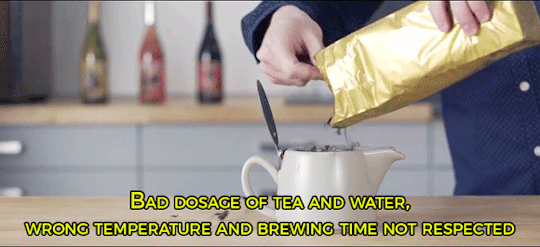

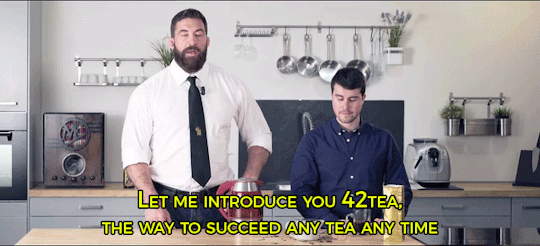


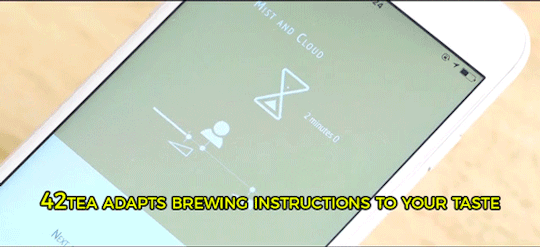
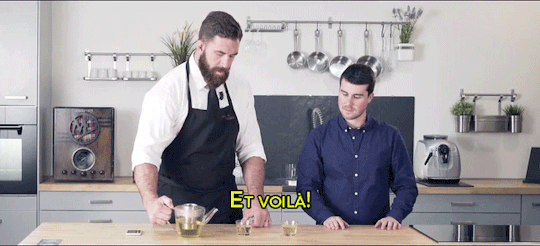
Discover 42tea, the smart connected device that helps you make the perfect cup of tea. Get more information here
#session 10#tea#smart devices#smarthomes#beyonce#put a ring on it#put a chip in it#privacy#data protection#surveillance#technodexterous#mic drop
5K notes
·
View notes
Quote
The strongest of all arguments against the interference of the public with purely personal conduct, is that when it does interfere, the odds are that it interferes wrongly, and in the wrong place.
`
John Stuart Mill, On Liberty (via philosophybits)
The level at which our privacy is invaded on a daily basis is enough to make John Stuart Mill turn in his grave.
Data is the new gold. The more of our private data that we cede (intentionally or unintentionally) to governments and private corporations the more powerful they become. The average person fails to realise that practically every action that we take online is recorded in one way or another.
I must admit that I am guilty of ignoring these consequences when browsing the internet or even when accepting the terms and conditions of applications/products.
We are often faced with a dilemma, should we aim for ultimate efficiency when using an app/website by accepting its cookies etc or should I reject such data processing and render the app/website virtually unusable. In a sense, we are strong-armed into consent without even realising it - We want to use the service so we give our consent to the data processor/controller to process our data so that we can use their services for free, often at the cost of in-your-face advertisement, which we put up with anyway because, Hey, its free.
What would Mill think of the way that we hand over our personal details without a thought in the world?

#session 9#privacy#internet#cyberlaw#cybersecurity#surveillance#big data#john stuart mill#consent#cookies#data protection
324 notes
·
View notes
Photo

Remembering the 5th of November, got me thinking, Why have Anonymous adopted the mask which depicts Guy Fawkes, a Roman Catholic terrorist? Alan Moore’s and David Lloyd’s “V for Vendetta” could be said to have sparked the Guy Fawkes mask’s use as a symbol for activism. The film, of the same name, released in 2005, popularised Fawkes as an anti-hero and the idea that “People should not be afraid of their government, government should be afraid of their people.”
It has now become a mainstay in political protests, particularly in relation to Anonymous styled hacktivism. It seems the decision to use the Guy Fawkes masks was inspired by the last scene of “V for Vendetta” where swarms of people gathered in the streets wearing the mask. The mask ensures anonymity and to a certain extent decentralisation, which are the main forces that allow Anonymous to thrive.
With the digitisation of practically everything, hacktivism has become the modern form of public demonstration or protest against governments and corrupt institutions/corporations. The wall of anonymity that the internet provides (or purports to provide!) equips people with a sense of power and freedom, because their voice can be heard around the world- either in the form of cyberattacks or merely by expressing their thoughts. A balance must ultimately be made between cyber and state security on the one hand, and the public’s right to freedom of expression and protest on the other, but this balance is rarely met.
Having adopted the Guy Fawkes facade, hacktivists have also adopted the same fate- i.e. criminal prosecution, with particularly disproportionate sentences imposed under the Computer Fraud and Abuse Act. Governments, particularly the USA, are cracking down on hackers to set an example and disincentivise potential infringers. Aaron Swartz who logged into JSTOR intending to download and distribute a vast number of scholarly articles faced 50 years or more jailtime, which is more than what you would get for murder or selling slaves. See- https://www.alternet.org/10-awful-crimes-get-you-less-prison-time-what-aaron-swartz-faced).
Meanwhile the maximum prison sentence for similar crimes for “unauthorised access to computer material” has a significantly lower maximum sentence term in the UK’s Computer Misuse Act 1990. Therefore the biggest danger that a UK based hacktivist faces is an extradition to the USA’s jurisdiction. Lauri Love is one such person, on the basis of accusations that he masterminded a 2013 attack by Anonymous on US government websites – See https://www.theguardian.com/news/2017/sep/08/lauri-love-british-hacker-anonymous-extradition-us for an excellent analysis of this case. Love faces a prison term of up to 99 years if he is extradited to the USA.
With all that said, it is important to develop laws suitable for online activism. To say that prison sentences for hackers are overkill (at least in the USA) is an understatement. That is not to say that hackers should be ignored- Anonymous sometimes claim to protect free speech and equality yet sometimes try to silence certain groups which do not share their world view. In essence, everyone has a right to their opinion but that is no justification for breaking the law.
#session 8#catonymous#anonymous#guy fawkes#hacking#hacktivism#cyberlaw#Aaron Swartz#lauri love#cybersecurity#cybercrime#computer misuse#unauthorised access
0 notes
Link
ACLU rushed to the defense of a blogger who wrote a piece criticising Taylor Swift and her latest album as alt-right and neo-nazi leaning, after Taylor Swifts’ lawyers sent a cease and desist letter to such blogger to remove the post. Meanwhile ACLU have been attacked by hordes of “Swifties”.
Ms. Swift has a notoriously strong internet and media presence as displayed by her public outcry against Apple Music criticising the way they paid royalties and forcing them to change their policy. I wonder, therefore, why Ms. Swift didn’t use the same tactics against the blogger. Why resort to attacking a small-time blogger rather than publicly clearing her name, through social media for example? I am not claiming that Swift is a neo-nazi, but her scare tactics may set a dangerous precedent – Public figures would be able to threaten publishers into submission whenever they’re faced with criticism. A balance must ultimately be made between the celebrity’s public image and a person’s freedom of speech.
Ultimately, by pursuing a defamation lawsuit she’s “swiftly” and unnecessarily subjecting herself to the Streisand effect-
Can she “Shake it Off”?
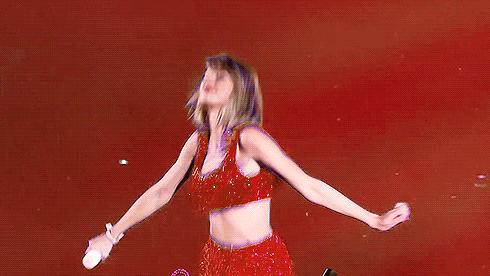
yeah who knew trying to stop people from calling you a white Supremacist warrented to this @taylorswift
3 notes
·
View notes
Video
This video by Professor Eric Faden of Bucknell University, briefly and entertainingly sums up copyright by mashing up various clips of Disney movies.
The best part about the video is that the creator chose Disney as his subject. Walt Disney is probably the biggest influence to the rules of copyright that we know today. Their enormous market power in the 1900s allowed them to influence legislators to tighten copyright owner’s grip on their works, paving the way for monopolies over their content (See https://artrepreneur.com/how-mickey-mouse-keeps-changing-copyright-law/ for an explanation as to how they actually did this).
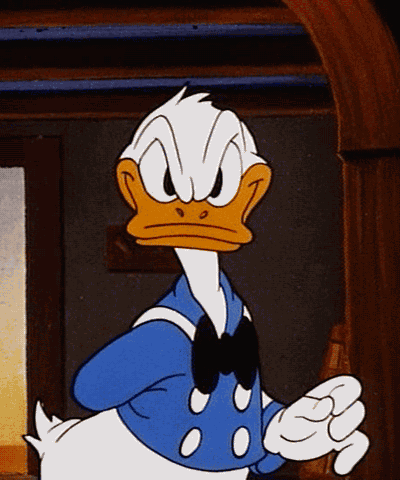
Professor Faden cleverly avoids copyright by using the very principle which he seeks to explain, i.e. “fair use” and the use of works which are in the public domain - cue my favourite line from the clip: “the public domain is a disgrace to the forces of evil.”
How ironic would it be if the video was actually taken down for copyright infringement?
youtube
A humorous yet informative video mashup of Disney characters explaining Copyright Law and Fair Use.
#session 5#disney#disneycharacter#walt disney#copyright#infringement#fair use#public domain#thepublicdomainisadisgracetotheforcesofevil#cyberspace#mashup#remix#youtube
2 notes
·
View notes
Text
The story of Aaron Swartz (one of the founders of Reddit) is both inspiring and tragic. He combined his technical expertise with a passion for activism, challenging the dogmatic views of governments and other big players relating to copyright and its relationship with the internet. Somewhat ironically, it was the same system that he sought to challenge which brought him down in the end. The greatest tragedy is that the legal framework robbed us of one of the greatest minds of our generation.
His impact on the internet cannot be overstated. I advise anyone with a keen interest in intellectual property in cyberspace (or anyone who loves reddit) to watch his documentary at https://www.youtube.com/watch?v=gpvcc9C8SbM (Credit to Brian Knappenberger - Luminant media).
“Unjust laws exist; shall we be content to obey them, or shall we endeavor to amend them, and obey them until we have succeeded, or shall we transgress them at once?” (Henry David Thoreau)
Aaron Swartz’s “Guerilla Open Access Manifesto”
Information is power. But like all power, there are those who want to keep it for themselves. The world’s entire scientific and cultural heritage, published over centuries in books and journals, is increasingly being digitized and locked up by a handful of private corporations. Want to read the papers featuring the most famous results of the sciences? You’ll need to send enormous amounts to publishers like Reed Elsevier.
There are those struggling to change this. The Open Access Movement has fought valiantly to ensure that scientists do not sign their copyrights away but instead ensure their work is published on the Internet, under terms that allow anyone to access it. But even under the best scenarios, their work will only apply to things published in the future. Everything up until now will have been lost.
That is too high a price to pay. Forcing academics to pay money to read the work of their colleagues? Scanning entire libraries but only allowing the folks at Google to read them? Providing scientific articles to those at elite universities in the First World, but not to children in the Global South? It’s outrageous and unacceptable.
“I agree,” many say, “but what can we do? The companies hold the copyrights, they make enormous amounts of money by charging for access, and it’s perfectly legal — there’s nothing we can do to stop them.” But there is something we can, something that’s already being done: we can fight back.
Those with access to these resources — students, librarians, scientists — you have been given a privilege. You get to feed at this banquet of knowledge while the rest of the world is locked out. But you need not — indeed, morally, you cannot — keep this privilege for yourselves. You have a duty to share it with the world. And you have: trading passwords with colleagues, filling download requests for friends.
Meanwhile, those who have been locked out are not standing idly by. You have been sneaking through holes and climbing over fences, liberating the information locked up by the publishers and sharing them with your friends.
But all of this action goes on in the dark, hidden underground. It’s called stealing or piracy, as if sharing a wealth of knowledge were the moral equivalent of plundering a ship and murdering its crew. But sharing isn’t immoral — it’s a moral imperative. Only those blinded by greed would refuse to let a friend make a copy.
Large corporations, of course, are blinded by greed. The laws under which they operate require it — their shareholders would revolt at anything less. And the politicians they have bought off back them, passing laws giving them the exclusive power to decide who can make copies.
There is no justice in following unjust laws. It’s time to come into the light and, in the grand tradition of civil disobedience, declare our opposition to this private theft of public culture.
We need to take information, wherever it is stored, make our copies and share them with the world. We need to take stuff that’s out of copyright and add it to the archive. We need to buy secret databases and put them on the Web. We need to download scientific journals and upload them to file sharing networks. We need to fight for Guerilla Open Access.
With enough of us, around the world, we’ll not just send a strong message opposing the privatization of knowledge — we’ll make it a thing of the past. Will you join us?
Aaron Swartz
July 2008, Eremo, Italy
#aaron swartz#intellectual property#copyright#cyberlaw#reddit#guerrilla open acces#the open access movement#session 4
2K notes
·
View notes
Link
The concept of ownership is changing right before our eyes (and its not pretty). Do we actually own anything anymore? With all products becoming smart, the boundary between “real” property and intellectual property is becoming increasingly blurred.
It is also becoming impossible to fix anything. From washing machines to mobile phones, if anything brakes, you are forced to throw it away, unless you want to spend a fortune on fixing it - but still fixing it my infringe upon the software owner’s copyright: That’s what I call a modern day Catch 22. Should we have a “right to repair”?
Take a mobile phone for example. What am I buying when I purchase an iPhone, i.e. what property rights are actually transferred to my name? As the law currently stands (both Property Law and IP law) all that I am buying is the physical case holding the internal parts together. In essence, everything which makes a smart phone “smart” is owned by the software owner, and I am just a licensee. What ever happened to our right to ownership?!
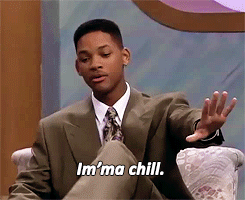
The idea is this: You buy a tractor that runs their software, and (the way they see it) therefore you don’t actually own the tractor. They do. Because software.
(SIDE EYE)
Read it and see if your brain doesn’t turn right around in your skull at the “logic”.
#session 3#ownership#copyright#software#right to repair#intellectual property#the internet#cyberlaw#right to ownership
3K notes
·
View notes
Video
youtube
An interesting take of what the world would look like if the internet was never made available to the public. (’an alternate 2017′)
AlternateHistoryHub envisage a world where:
- The government controls all information
- Rental video stores still flourish
- Online gaming never exists (:O GASP!)
- Social media doesn’t exist. I.e. no Facebook (maybe a good thing?!) and no Tumblr (:O :O DOUBLE GASP!)
- And most shockingly, a world where cat inspired memes/gifs were never created.

Most importantly, this video serves as an eye opener as to how different our lives would be if governments decided to reserve the internet to themselves. This is also a lesson for the future, or rather, a plea to the governments of the future to keep their hands off the internet- Unless absolutely necessary to intervene, leave the internet to regulate itself or we could potentially be robbed of life-changing technology.
0 notes
Video
youtube
Cyberspace, the “new home of Mind” (John Perry Barlow) spurred on a new generation of creative and innovative minds, that created all of the applications that we know and love today: Youtube, Instagram, Twitter, Facebook and Tumblr. The internet brings people together, it connects us to the rest of the world. It is a place where even the average user has an opportunity to create and innovate: “A place where you can be yourself no matter if you’re geeky. Find people that share your hobbies even if they’re freaky”.
However in its cheerful, enthusiastic and positive approach to the internet, this song, “The Internet is Here” is uncharacteristic for its time. Cyberspace has created an era of digitisation, allowing the sharing of media, thought and other forms of expression to be facilitated at the click of a button, on a scale and at a rate which even Tim Berners-Lee could not have imagined. This has proved to be a challenge for copyright owners and governments alike. The history of copyright and the growing powers of the copyright holder are a result of the lobbying of powerful copyright holders (e.g. Disney) with governments and compromises that they reached together. The same thing is happening in the 21st century as copyright holders are fearful of the sheer ease and efficiency of copying that the internet affords to its users.
The growth of the internet has especially shocked legal systems which have existed for hundreds of years, systems which are still based on traditional (read ancient) principles of law. Legal systems have struggled to find new ways of controlling it - The race between cyberspace and cyberlaw is more like a marathon and you don’t have to be a genius to guess which of them represents the hare or the tortoise.
In the end, “The internet is here”, nothing can stop it, we might as well embrace it!
#session 1#internet#the internet is here#avocado#technodexterous#law#cyberlaw#danandphil#john perry barlow#tim berners-lee
1 note
·
View note